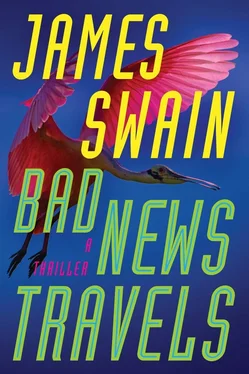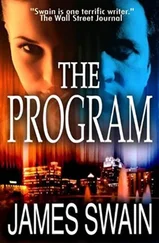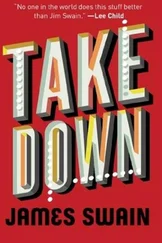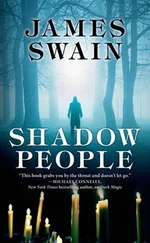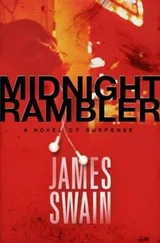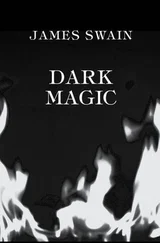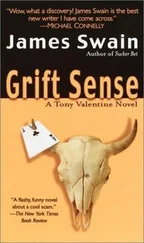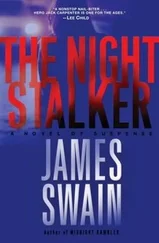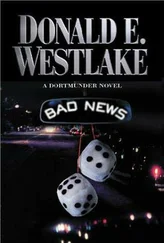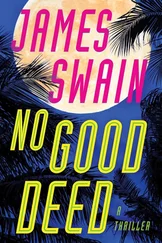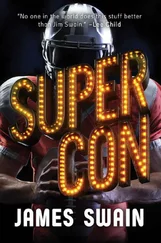James Swain
Bad News Travels
Not many people could say that a chicken had saved their life.
But Jon Lancaster could. It had happened in the Republic of Mali, in West Africa. The region had been infiltrated by an Al Qaeda franchise called AQIM, which funded its terrorist activities by kidnapping foreign ambassadors and oil executives, and holding them for huge ransoms. It was nice work if you could get it, and AQIM had become one of the richest terrorist cells in the world.
Lancaster’s SEAL unit had been sent to Mali to rescue an oil executive named Duncan Farmer. Farmer and his wife had been hosting a dinner party in their home when an AQIM team burst in, executed several guests, and spirited Farmer away. The next day, a ransom note was delivered to the local American embassy.
The SEAL unit’s marching orders had been simple. Rescue Farmer and bring him home, and give AQIM a taste of their own medicine.
Lancaster was the front man, his relatively short stature and potbelly allowing him to mingle easily with the natives. He’d been born with gastroschisis, a condition that gave him a big stomach. People thought he was fat, but it was an illusion. Dressed in flowing robes and his face darkened by charcoal, he shuffled down the dirt road leading into town without drawing suspicion.
He’d left before dawn. It was quiet, and he saw only a handful of people, mostly women going to fetch water. As he neared town, a chicken ran out onto the road, and started squawking up a storm. Not just any chicken, but a variety called a naked neck, a prodigious layer of eggs. He’d encountered naked neck chickens during missions in Africa before, and was ready. Reaching into the pocket of his robe, he removed a handful of corn, and sprinkled it liberally on the ground. The chicken quieted down and pecked away.
“Where are your buddies?” he asked.
It was an honest question. No one in Africa owned just one chicken; they owned a brood, and kept them for eggs and their meat. Having just one chicken would be like owning an aquarium and keeping a single fish. It didn’t feel right. He needed to find out why there was only one chicken, or risk putting himself and his unit in danger.
The chicken cleaned the ground and squawked for more. Kneeling, he held the rest of the corn in front of the chicken’s face, tempting it. Clearly irritated, the chicken flapped its wings, and the squawking grew louder.
A faint bock bock bock reached his ears, the sound originating from a mud house sitting a hundred feet off-road. The house had no electricity, the only sign of life a billow of smoke coming from its chimney. The bock ing sound grew into a chorus as the brood, which he assumed was locked in pens behind the house, joined in.
He let the corn sift out of his hand, and the chicken started eating.
He wondered why the brood was locked up. There had to be a good reason, only it wasn’t coming to him. Had their owner been ordered by AQIM to lock up the chickens so they wouldn’t be a distraction? If so, then he was walking into a trap.
He decided to leave. Using a Garmin GPS, he got his coordinates, then walked back to his unit, who were hiding in the bush a half mile down the road. He relayed his suspicions to the officer in charge, and gave him the reading off his phone.
The OIC called the base, and requested a reconnaissance satellite spy on the area. A half hour later, the base gave them the bad news. Twenty armed men were hiding up the road from where he’d met the chicken. He wouldn’t have stood a chance.
The OIC asked for a drone to drop a bomb on the men. Then, the unit hunted down the villager who’d given them the bad information, and persuaded him to reveal where Farmer was being held prisoner. The next day, bruised and beaten but still very much alive, Farmer was flown back to the States with his family.
Lancaster thought about that chicken often. If it hadn’t run into the road and made a fuss, he would have walked into a trap, and probably perished. He owed that dumb bird his life, and for the longest time, he hadn’t ordered poultry when he was in a restaurant.
It seemed like the least he could do.
Memorial Presbyterian Church in Saint Augustine was a towering structure of poured concrete and crushed coquina stone, with architectural details painstakingly created with terra-cotta. Looking at the building took your breath away, and Lancaster couldn’t think of a more fitting place for Martin Daniels’s funeral to be held.
He had never met the man, but had heard so many stories from his daughter Beth that he felt like he knew him. Although it sounded trite, Daniels had been a pillar in his community. Surgeon, college professor, philanthropist, church elder. Everyone he had touched had come away better for the experience. He’d made the world a better place, and several hundred people had turned out to pay their respects.
“Dad would be embarrassed,” Beth said under her breath.
“Your father didn’t like spectacles, did he?” he asked.
“He hated them. Not that there’s anything we can do about it.”
He’d had to park several blocks away. As they neared the church, he asked if the knot in his tie looked okay. They stopped for Beth to check, and he gazed into her eyes. She’d been crying for days, and she looked like hell. It didn’t matter how old you were; when your last parent died, you became an orphan.
“You going to be okay?” he asked.
“I’m managing,” she said.
Grief had a way of robbing a person of their strength, and he knew of only one thing that would make Beth feel better. He hugged her.
“Thank you,” she said, and kissed his cheek.
The church was on a brick-lined street called Sevilla. As they crossed, a black Charger with tinted windows and black exhaust billowing from its tailpipe caught his eye. There were a dozen parked cars on the street, but the Charger was the only one occupied.
He stopped to stare while Beth kept walking.
“It’s nothing,” she said over her shoulder.
They’d been dating for a few months. Long enough for Beth to be able to read him, and know what he was thinking.
“How do you know it’s nothing? It looks suspicious,” he said.
“It’s broad daylight, and it’s a church. Come on, we’re going to be late.”
“It doesn’t look right.”
“Get over it. Please.”
He quickly caught up. Melanie met them at the entrance. The sisters embraced, and Melanie gave Lancaster a hug. She was a wreck, and barely holding on.
“Nolan and Nicki are in the front row. They saved you seats,” she said.
“How many people are inside?” Beth asked.
“At least three hundred. It’s standing room only.”
“Dad would be mortified.”
“I was thinking the same thing. I guess it’s better than the church being empty. There are some FBI agents from the Jacksonville office who said they knew you.”
“How nice. I’ll have to make sure to say hello.”
Lancaster’s guard refused to go down. He shot a glance over his shoulder, and saw that the Charger hadn’t budged. It just felt wrong.
“When did the people start arriving?” he asked.
The question caught the sisters by surprise.
“About an hour ago. Why?” Melanie asked.
“Just curious.”
Holding hands, the sisters started to go in. They hadn’t always been close, but that had changed when Melanie’s daughter had become the target of predators, and Beth had joined forces with Lancaster to stop them. Since then, they’d grown tight, and were now doing a good job of emotionally supporting each other.
“I left my phone in the car. I’ll join you in a few,” he said.
Читать дальше
